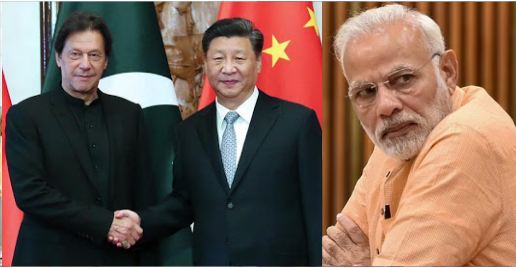India’s glaring chinks in the armour were exposed recently when Pakistani hackers aided by the Chinese managed to mount a significant cyberattack on India-based power generation and transmission organisations. According to a report by The Sunday Guardian Live, the hackers based out of Pakistan using an internet platform provided by China Mobile Limited under the brand name Zong 4G, carried a phishing attack by using decoy PDF documents that propelled the organization officials to open the files and later used the access to take over the system.
Some of the files were named as: EngrCorpsPolicy.zip, vaccination.zip,Call-for-Proposal-DGSP-COAS-Chair-Excellance.pdf.lnk,DATE-OD-NEXT-INCREMENT-ON-UP-GRADATION-OF-PAY-ON-01-JAN-AND-01-JUL.pdf.lnk, Covid Vaccination On Emergency Basis for All Employees and their Familes.pdf.lnk, and certindia.ignorelist.com.
The CoWin registration link was also used as a decoy document to lure the government officials into opening and downloading the documents which ultimately left the system and the sensitive data on it, open for the hackers to feast upon. Reportedly, a US-based company out of Monroe, Louisiana named Lumen technologies managed to track the cyber-attack and alerted the authorities.
In what comes as a bigger threat, the hackers even targeted the military personnel to enter the confidential systems. The report states that one of the decoy documents resembled an invitation card for an event that was being organised by the Bombay Engineer Group, also known as the Bombay Sappers, a regiment of the Corps of Engineers of the Indian Army, which is based at Khadki in Pune. The Group completed its 200 years in service in January last year.
It is pertinent to note that China Mobile Limited whose services were used by the Pakistani hackers is a 100 percent CCP backed company and thus it can be said with utmost certainty that the entire plan was hatched by the Politburo sitting in Beijing, while the fieldwork was outsourced to its prostrating servant – Pakistan.
A couple of days after the cyberattack, Indian foreign secretary Harsh Vardhan Shringla, whilst attending a UN debate on cybersecurity, directly took on Pakistan and China and remarked that cyber tools were being used to target critical infrastructure, introduce vulnerabilities and disrupt social harmony.
In oblique criticism of China, Shringla said that cyber tools were being used to compromise state security by “attacking critical national infrastructure, including health and energy facilities, even disrupting social harmony through radicalisation.” “Open societies have been particularly vulnerable to cyber-attacks and disinformation campaigns,” he said.
As reported by TFI, earlier Australia and the Philippines had also chastised China for its nefarious plans of targeting the power grids of the country after it had supplied most of the equipment. New Delhi has been served a timely reminder as well and before the next big attack comes lurking around, the government should try to beef up the cybersecurity apparatus.
